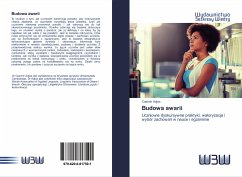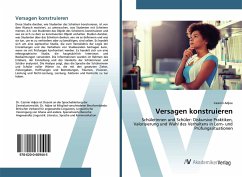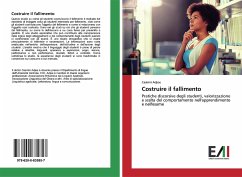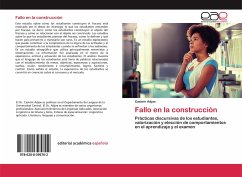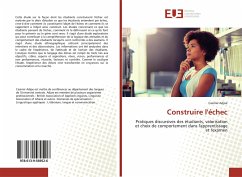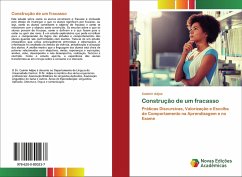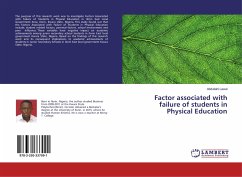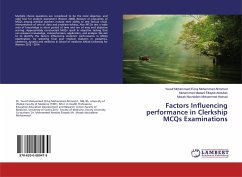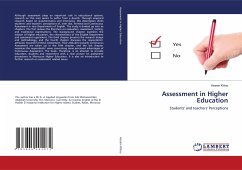
Constructing Failure: Students Discursive Practices, Valorization, and Choice of Behaviour in Learning and Examination S
Versandkostenfrei!
Versandfertig in 6-10 Tagen
18,99 €
inkl. MwSt.

PAYBACK Punkte
9 °P sammeln!
This study about how students construct failure is motivated by the desire to investigate what students mean by failure, that is, how students constitute the object of failure and how they relate to the object so constructed. Studies regarding what students think of failure, how they define it, and what they do to prevent it or to manage it are rare. It is an exploratory study that may contribute to the understanding of the logic of students' attitudes and behaviour when they are confronted by examinations. It is an ethnographic study using mainly interviews and observations. The information w...
This study about how students construct failure is motivated by the desire to investigate what students mean by failure, that is, how students constitute the object of failure and how they relate to the object so constructed. Studies regarding what students think of failure, how they define it, and what they do to prevent it or to manage it are rare. It is an exploratory study that may contribute to the understanding of the logic of students' attitudes and behaviour when they are confronted by examinations. It is an ethnographic study using mainly interviews and observations. The information was analyzed within the framework of students' experiencing, attitudinizing and acting. The analysis shows that the students' language is full of words related to set goals, targets, hopes and aspirations, dreams, vision, performance and non-performance, achievement, factors and control. As the study points out, students' experiencing turned into beliefs about consumption and the market. Participation in schooling is therefore about being fashioned for a market. With this belief, their attitudes and their postures are informed by the logic of the market.



